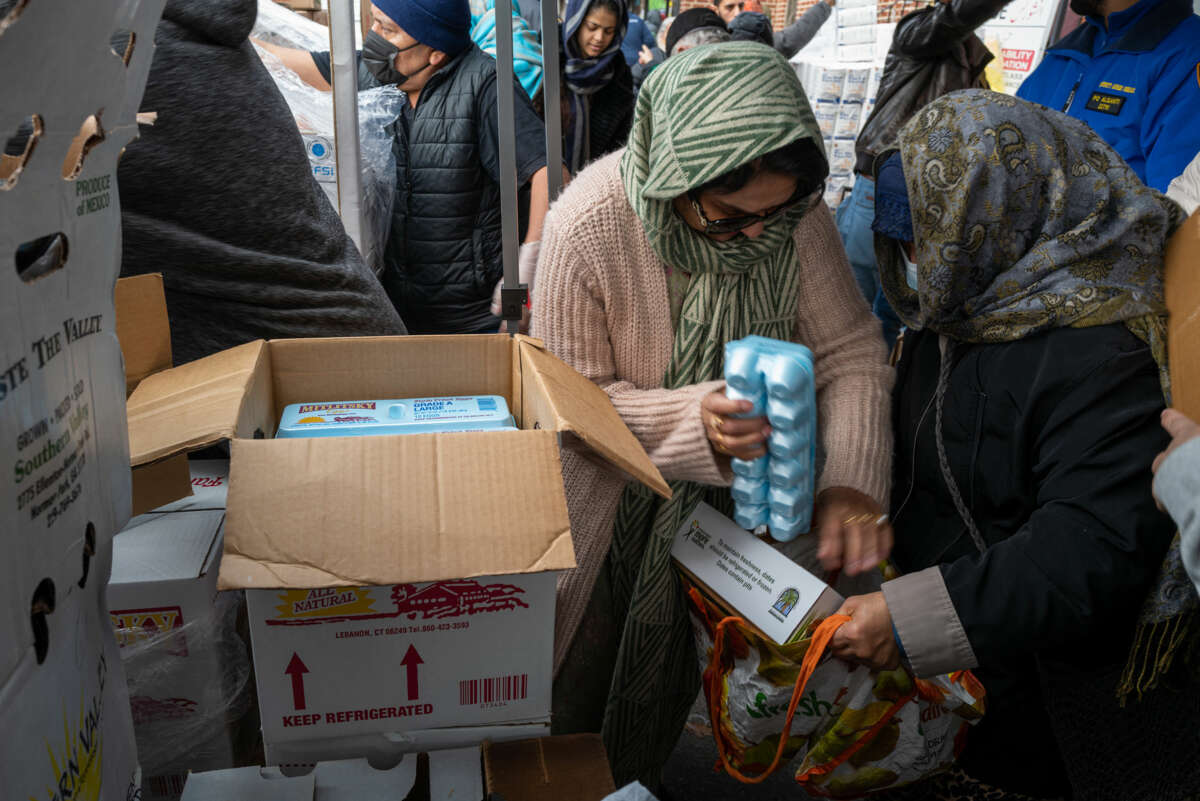Research published this week in the Journal of the American Medical Association estimated that poverty was linked to at least 183,000 deaths in the United States in 2019 among people aged 15 or older, making inadequate income the nation’s fourth-leading mortality driver that year behind heart disease, cancer, and smoking.
“Poverty kills as much as dementia, accidents, stroke, Alzheimer’s, and diabetes,” said David Brady, a professor of public policy at the University of California, Riverside and the lead author of the new analysis.
“Poverty silently killed 10 times as many people as all the homicides in 2019,” Brady continued. “And yet, homicide, firearms, and suicide get vastly more attention.”
Rev. Dr. William J. Barber II, co-chair of the Poor People’s Campaign, wrote Wednesday that the research underlines the importance of connecting “extremists’ inaction” on gun violence to “other forms of policy murder.”
The new analysis, co-authored by Ulrich Kohler of the University of Potsdam in Germany and Hui Zheng of Ohio State University, stressed that the U.S. “perennially has a far higher poverty rate than peer-rich democracies,” which “presents an enormous challenge to population health given that considerable research demonstrates that being in poverty is bad for one’s health.”
Poverty, which the study defined as less than half the median U.S. income, was “associated with greater mortality than many far more visible causes in 2019 — 10 times as many deaths as homicide, 4.7 times as many deaths as firearms, 3.9 times as many deaths as suicide, and 2.6 times as many deaths as drug overdose.”
The researchers argued their results indicate that “poverty should be considered a major risk factor for death in the U.S.,” which has seen life expectancy decline since 2015 — and fall sharply amid the coronavirus pandemic.
“Because the U.S. consistently has high poverty rates, these estimates can contribute to understanding why the U.S. has comparatively lower life expectancy,” the researchers wrote. “Because certain ethnic and racial minority groups are far more likely to be in poverty, our estimates can improve understanding of ethnic and racial inequalities in life expectancy.”
“The mortality associated with poverty is also associated with enormous economic costs,” they continued. “Therefore, benefit-cost calculations of poverty-reducing social policies should incorporate the benefits of lower mortality. Moreover, poverty likely aggravated the mortality impact of Covid-19, which occurred after our analyses ended in 2019. Therefore, one limitation of this study is that our estimates may be conservative about the number of deaths associated with poverty.”
The onset of the coronavirus pandemic in 2020 brought about a sharp increase in U.S. poverty as millions of people got sick, were thrown out of work, and lost health insurance.
But federal aid initiatives enacted in response to the public health and economic crisis — from stimulus checks to boosted unemployment benefits to enhanced nutrition assistance — ultimately led to a significant drop in poverty, further bolstering the case that “poverty is a policy choice.”
However, many of those poverty-reducing aid programs, including the enhanced Child Tax Credit that sharply slashed poverty among kids in the U.S., have since lapsed or been terminated, threatening to reverse any recent progress.
Brady said in a statement that if the U.S. had less poverty, “there’d be a lot better health and well-being, people could work more, and they could be more productive.”
“All of those,” he added, “are benefits of investing in people through social policies.”
Angry, shocked, overwhelmed? Take action: Support independent media.
We’ve borne witness to a chaotic first few months in Trump’s presidency.
Over the last months, each executive order has delivered shock and bewilderment — a core part of a strategy to make the right-wing turn feel inevitable and overwhelming. But, as organizer Sandra Avalos implored us to remember in Truthout last November, “Together, we are more powerful than Trump.”
Indeed, the Trump administration is pushing through executive orders, but — as we’ve reported at Truthout — many are in legal limbo and face court challenges from unions and civil rights groups. Efforts to quash anti-racist teaching and DEI programs are stalled by education faculty, staff, and students refusing to comply. And communities across the country are coming together to raise the alarm on ICE raids, inform neighbors of their civil rights, and protect each other in moving shows of solidarity.
It will be a long fight ahead. And as nonprofit movement media, Truthout plans to be there documenting and uplifting resistance.
As we undertake this life-sustaining work, we appeal for your support. Please, if you find value in what we do, join our community of sustainers by making a monthly or one-time gift.
